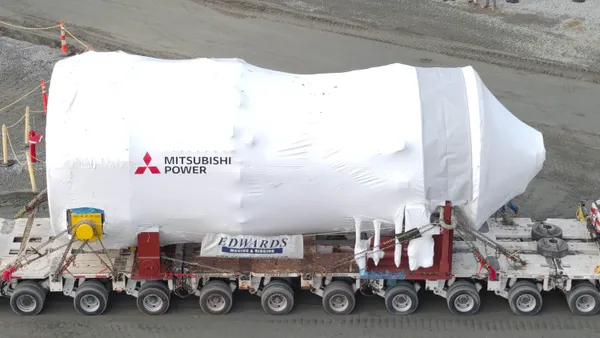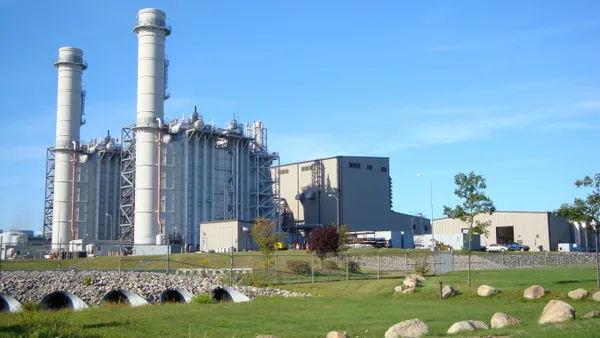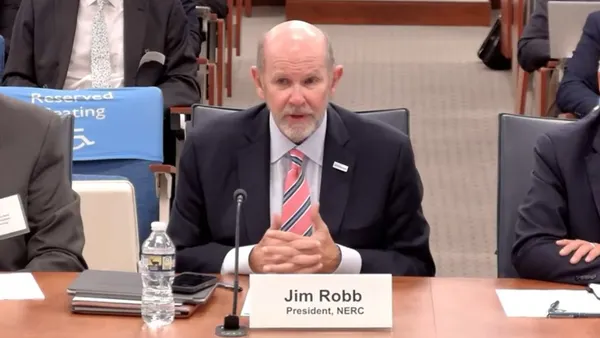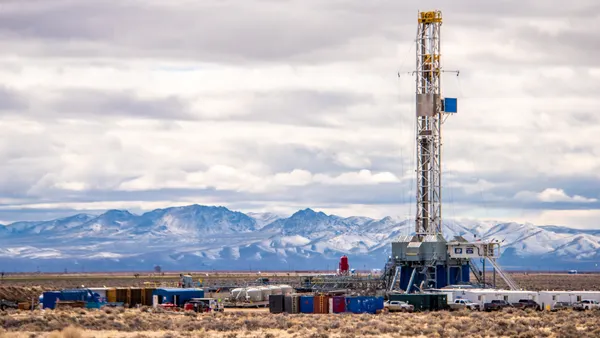Dive Brief:
- The Department of Energy has suspended funding from the 2009 stimulus act for a California carbon capture and sequestration (CCS) project, Greenwire reports, after the project failed to meet critical developmental deadlines.
- DOE committed $408 million to the project being built by Hydrogen Energy California LLC (HECA), designed to trap coal plant emissions and utilize the waste to make fertilizer or extract oil. It will withhold $250 million in additional funding and has already reimbursed the company $153 million.
- The agency says the project has failed to meet benchmarks such as failing to sign on customers to use its product for advanced oil recovery.
Dive Insight:
DOE officials say they are not eliminating funding for the HECA project completely, and support could be restored if progress accelerates.
HECA's troubles, Greenwire points out, echo many of the struggles faced by the FutureGen 2.0 project before DOE pulled the plug on it in February of this year, leaving it dead in the water. When that happened, DOE officials speculated that HECA might not receive all of its stimulus dollars because of issues with the project timeline.
Funds available from the 2009 stimulus act were not open-ended, but designed to stimulate the economy in the short term. As such, the agency was required to spend the portion of the HECA funding from the law before September of this year, making the project timeline even more important. Inability to meet the stimulus act deadline was a major reason underlying the FutureGen decision as well.
While elimination of DOE funding meant FutureGen was scrapped, the CEO of the company developing HECA said that the project will continue on with private financing.
Both HECA and FutureGen were two projects the EPA used to justify proposed regulations stipulating that all new coal plants utilize CCS technology. Critics say the technologies are not widespread or commercially proven, and point to difficulties with the projects in opposing the mandates.
Reports in May suggested that EPA may have been thinking about dropping the CCS requirement over concerns that the rule would not hold up to a legal challenge.













